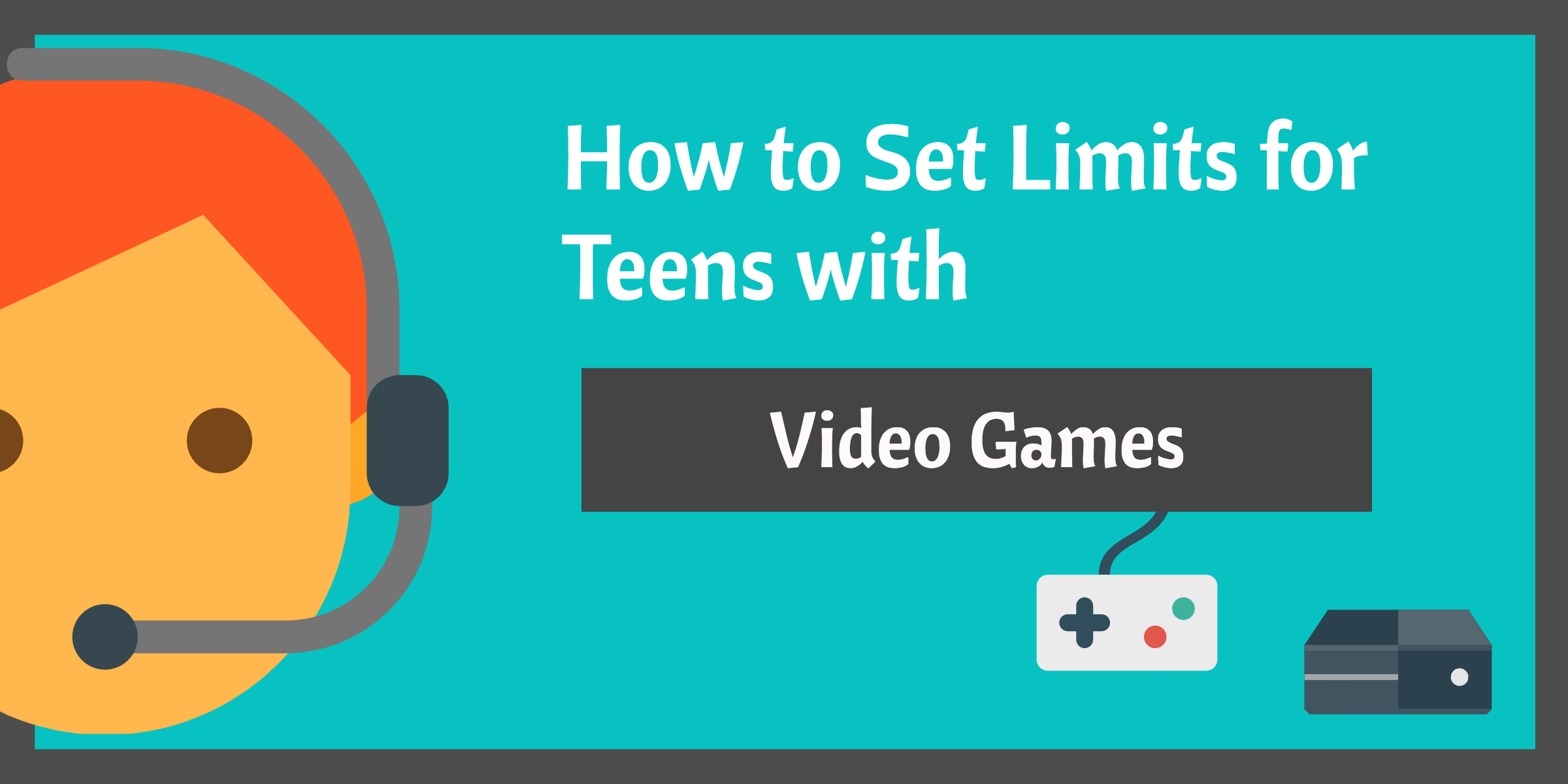Listen to the Podcast Episode
Because every teen is different and every family is different, it’s tough to suggest hard and fast rules. For almost every tip I offer, I can usually think of several teens and families who don’t fit in that category or for whom that particular strategy won’t work. But parenting is a long game. Even if you find only one tip, one helpful strategy that you can see yourself implementing and following through with, you’re making progress in the long game.
Avoid “All or Nothing” Reactions
Some parents are so overwhelmed by their teen’s use of video games they become overwhelmed and choose to do nothing. This is often not a conscious choice, but when I ask them about their approach to monitoring and limiting video game playing they say, “We just don’t know what to do.” Its usually not because they don’t know what to do, it’s most often that they don’t know which one of the many possible responses they should do. In this overwhelmed state, many parents do nothing and say “Well, its better than a lot of other things they could be doing.” And while this is true, it’s often what we tell ourselves to feel better about feeling powerless and resigned.
Don’t Do the Last Thing First
Even when they identify a few potential boundaries, they’re not sure what to do first. And so they do nothing. If or when the problem they think “OK, this is a problem and I’ve done nothing about it. I need to do something.” Then they rip the games away from their teens with little dialogue or explanation. They do the last thing first. When we’re not sure about the process of setting limits, we’ll default to the extreme (getting rid of games all together) because its simpler and easier. This not only hurts your relationship with your teen but it is tough or impossible to follow through because you haven’t thought and felt it through.
Ask Teens Questions about Gaming and Listen
Some parents worry that asking questions about video games will only encourage their teen to play more. Asking questions about your teen’s interest in games shows that you are interested in him. As parents we want our children to know and feel that while we may not like or approve of their choices, we do approve of who they are.
Go to Youtube
Find out the names of the games that she or he plays the most. Ask, I know you play more than one game but if you could only play one what would it be?” Then go to youtube, type in the name of the game and look for videos that have teens playing the game while talking over it. Here’s one for Call of Duty. Be aware you may encounter crude language and you might have to watch a couple to get the feel of it. This gives you a little perspective on their experience of the game before you play with them or watch them play.
The Right Words at the Right Time in the Right Tone of Voice
Too often parents, who are busy and overwhelmed, don’t’ put enough thought and consideration into how they’re going to approach their teen about gaming. It usually happens late at night after a long day at work and with very little patience in the reservoir. Word choice, tone of voice and timing are all important factors to consider when establishing any new boundaries.
Trust Your Intuition
If your intuition is telling you that your teen’s gaming is unhealthy, then it probably is. If you doubt your intuition, talk to a friend or mentor you trust and who knows you well. They can help you to sift through any self doubt enabling you to approach the issue with confidence that you’re doing the right thing. It’s OK to say and feel “I feel/sense there’s a problem here, but I can’t put my finger on it. I don’t know exactly what it is, but something’s not right.” Trust your gut and the clarity and language to articulate that clarity will come in time.
Ask Your Teen
You may be surprised at how level headed your teen is when you ask them what they think is an appropriate amount of time to be allowed to play video games. You can preface by saying “We’re not agreeing to let you determine the limits, but we do value your input and will take that into consideration when establishing our rules.”
Be Transparent
If you haven’t had any rules about gaming and are about to set some boundaries, you need to say that to your teen. “Look, I know we haven’t had any rules, but we feel its important to limit your time playing video games.” We’re not perfect parents by any stretch and while we knew this was a problem, we didn’t know how to handle it just right, so we did nothing. But this is what we’re going to do.” Saying that to your teen earns you their respect, because you named the obvious. If you don’t they’ll be thinking, “Here we go, they read some blog and now they’re over reacting. They’ve let me play as much as I want for three years, but now they’re changing their mind. Grrrr… and then they become even more resentful and resistant. When you acknowledge the obvious, they feel heard and understood even if they never say it. This helps lower their resistance and aids in getting them to cooperate with the new limitations.
Help Them Find Replacement Activities
What’s going to take the place of the gaming? If your teen is spending hours each day gaming, when you limit that time, what’s going to fill the place of that time? Depending on the age of your teen, it will ultimately be their responsibility to find a meaningful use of their time. But even older teens need help to find constructive uses of their time. In many cases they resorted to video games because they couldn’t find other non-screen ways to use their time for entertainment, stress relief and socializing. Yes, this is more work for you the parent. That’s why its important to think this through before you do it. Some options might include,
- exercising together with your teen
- a part time job
- volunteer or service work
- joining a club or sport or other team
- starting a hobby (especially for boys – something they can manipulate with their hands taps into their brains natural kinesthetic learning style)
When possible try to find ways to do some of these together with your teen. Your teen will most definitely prefer to play video games at first. Communicate to them that you understand that this is a difficult adjustment for them, but that you intend to stick with it. Convey positivity and show interest in the replacement activities.
Start with School Nights
If you’ve had no restrictions on gaming or if you feel you need to be more strict, not allowing gaming on school nights is a doable and helpful rule. If you’re looking for permission to not allow your teen to game on school nights, look no further. You have it. This is perfectly reasonable. Be aware though, that many teens will binge game on the weekends to make up for a week of fasting. Rules around gaming should be followed on weekends as well. Some find that having a rule that says “no more than two hours at a time, and then you have to do something ‘off screen’ for a half hour to an hour an acceptable rule.
Establish and Follow Through on Consequences
Whatever your rules for gaming are, make sure you establish consequences for breaking the rules and then follow through on those consequences. If your teen does not follow the rule, there needs to be a reasonable and relevant consequence.Taking their phone away because they stayed up too late gaming is not a relevant consequence. Banning gaming for a month the first time they break their gaming curfew is not an reasonable consequence. Not allowing your teen to game for one or two days is an example of a relevant and reasonable consequence.
Defiance and Obsessive Gaming are Two Separate Issues
If your teen goes ballistic because you’ve set rules around gaming they don’t like, don’t panic. That’s normal and to be expected. They’re a teenager. Extreme emotionality is to be expected. If the anger iis prolonged,or they become belligerent, or sulk for more than a day or two, there could be an underlying problem and you may benefit from seeking the assistance of a counselor or other mentor for your teen. If your teen gets violent when removing games or setting restrictions around the games, there’s a serious problem indicating they need help detoxing and with managing strong emotions.







Thanks for the “two hours at a time” idea. Will use it!